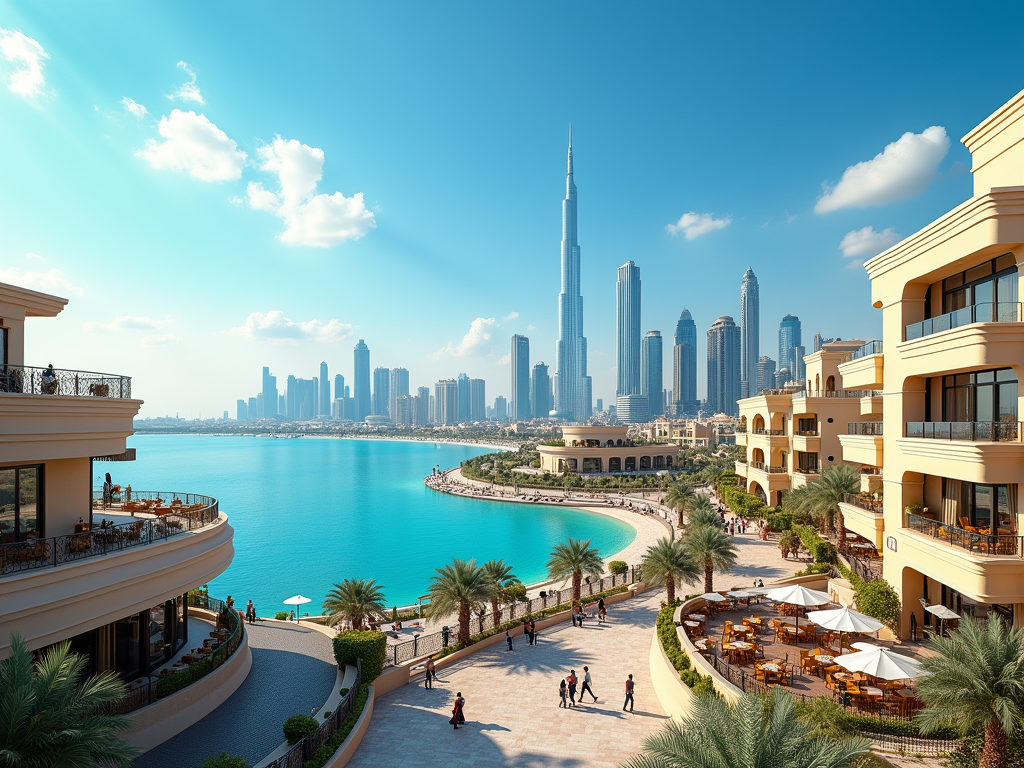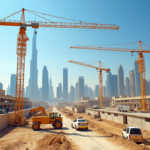Dubai’s real estate market stands out as a significant contender among global investment hotspots, driven by unique factors such as tax incentives, strategic location, and a booming tourism sector. The city offers a blend of luxurious living, innovative architecture, and a diverse economy, positioning it as a hotspot for both local and international investors. In this article, we will delve into the various aspects that contribute to Dubai’s attractiveness as a real estate investment destination, comparing it to other leading global markets, and examining the opportunities it offers. Explore with us how Dubai’s real estate landscape compares with cities known for high economic growth and investment yield.
The Appeal of Dubai’s Real Estate Market

One of the key elements driving interest in Dubai’s real estate is its multifaceted appeal, which encompasses several distinct characteristics. These include:
- No Property Taxes: Dubai is known for having no income tax and no property tax on residential properties, making it an appealing and lucrative option for investors.
- Diverse Offerings: The city provides a wide range of real estate options, including luxury villas, commercial spaces, and affordable housing, catering to a variety of investment strategies.
- Strong Rental Yields: Investors can enjoy rental yields that often surpass those in Western markets, making it a financially attractive opportunity.
- Tourism and Business Growth: With an ever-growing tourism sector and status as a global business hub, demand for real estate continues to rise.
- Strategic Location: Dubai serves as a gateway between Europe, Asia, and Africa, attracting international buyers and businesses.
These features contribute to a robust real estate market that consistently draws both local and foreign investments, making it competitive among global property destinations.
Comparative Analysis: Dubai vs. Global Hotspots

When evaluating Dubai’s market in contrast to other noteworthy global real estate hotspots such as New York, London, and Singapore, several key factors emerge. While cities like New York and London have long been recognized for their real estate stability and prestige, they also grapple with high entry costs and onerous property taxes.
In contrast, Dubai provides a more affordable entry point for investors, combined with a more attractive tax environment. An analysis of key investment metrics reveals:
- Price per Square Foot: Dubai’s prices often remain competitive when benchmarked against cities like London and Manhattan.
- Investment Regulations: Dubai’s government has streamlined processes, promoting ease of doing business and protecting investors’ interests.
- Market Growth: The city’s real estate market has seen consistent growth, facing far fewer fluctuations compared to more mature markets.
This comparative analysis underscores Dubai’s strength as an emerging leader in global real estate investment.
The future outlook for Dubai’s real estate market appears optimistic due to several key developments. Major events like Expo 2020 and continuous government initiatives aimed at attracting foreign investment will further bolster market growth. Other factors influencing the foreseeable market conditions include:
- Ongoing Infrastructure Improvements: The government’s commitment to enhancing infrastructure will improve connectivity and living standards, making the city even more appealing.
- Diverse Economic Initiatives: The focus on generating new business sectors like technology and healthcare presents additional opportunities for growth.
- Expanding Foreign Ownership Regulations: As regulations evolve, more foreign investors will have opportunities to own property in Dubai, boosting demand.
All these developments position Dubai uniquely, ensuring it remains a prime choice for investors looking for sustainable appreciation in real estate value.
Conclusion
In summation, Dubai’s real estate market is increasingly recognized as a premier investment hotspot, rivaling cities such as London, New York, and Singapore. Its unique appeal stems from a combination of tax benefits, competitive pricing, and ongoing governmental support for economic growth. With an investor-friendly environment and a bright outlook for the future, Dubai offers considerable opportunities for lucrative returns. As the global market continues to evolve, Dubai will likely remain at the forefront of attractive real estate destinations for both seasoned and novice investors.
Frequently Asked Questions
1. What are the main advantages of investing in Dubai real estate?
The main advantages include no property taxes, high rental yields, a diverse range of properties, and a strategic location that supports international business.
2. How does property price comparison work between Dubai and other cities?
Property prices in Dubai are typically lower compared to cities like London or New York, offering a more affordable entry point for investors.
3. What kind of returns can investors expect from the Dubai real estate market?
Investors can expect attractive rental yields, often exceeding those typically found in developed markets, depending on the property type and location.
4. Are there any restrictions on foreign ownership in Dubai real estate?
No, there are minimal restrictions on foreign ownership for most types of properties, particularly in designated freehold areas.
5. Is it a good time to invest in Dubai real estate?
Given the ongoing developments, favorable economic conditions, and government support, it is generally considered a promising time to invest in Dubai real estate.


